After graduating with a BSc in Biology (with a major in Marine Biology) from the University of Bremen in the summer of 2020, my academic plans got a bit “disturbed” by the ongoing pandemic. So I decided to do an internship within EU territory to make use of the Erasmus+ funding scheme instead. My plan was to deepen my skills in the field of molecular marine biology, working with genetics applications to study biodiversity.
Given the difficult circumstances due to the pandemic, finding an internship shop in the first place proved challenging. I finally decided to apply at university work groups across Sweden, hoping an opportunity might come up there due to the less strict Covid regulations (whatever one might think of that). Indeed, a few work groups sent a positive reply and I decided on the Swedish eDNA Lab at the Marine Science Department of Göteborgs Universitet. We agreed on a start date in October 2020.
Finding an affordable place to stay that was not a scam was the next challenge to overcome, as Göteborg, Sweden’s second biggest city, is a popular destination for Erasmus and international students as well as expats. Despite searching for a room quite short notice, one of the various Facebook groups (a great place to look for accommodation around the world these days) proved resourceful. After a quick video call, I had secured my room in a shared student housing apartment – that was much easier than expected.
Other than the field work itself, molecular biology is very laboratory and informatics heavy. The first part of my internship was therefore computer-based. My work group is part of a European network to study marine biodiversity using DNA analysis. I started to setup a bioinformatics analysis pipeline to make use of the extensive datasets. Given that I had only some minor experience with this, it took me most of the fall and winter and I learnt new skills and improved my existing ones immensely. Of course, the pandemic greatly affected my work but also my life in Sweden in general. Despite less strict restrictions, work from home and other regulations and a worsening pandemic situation still meant social isolation to some extent.
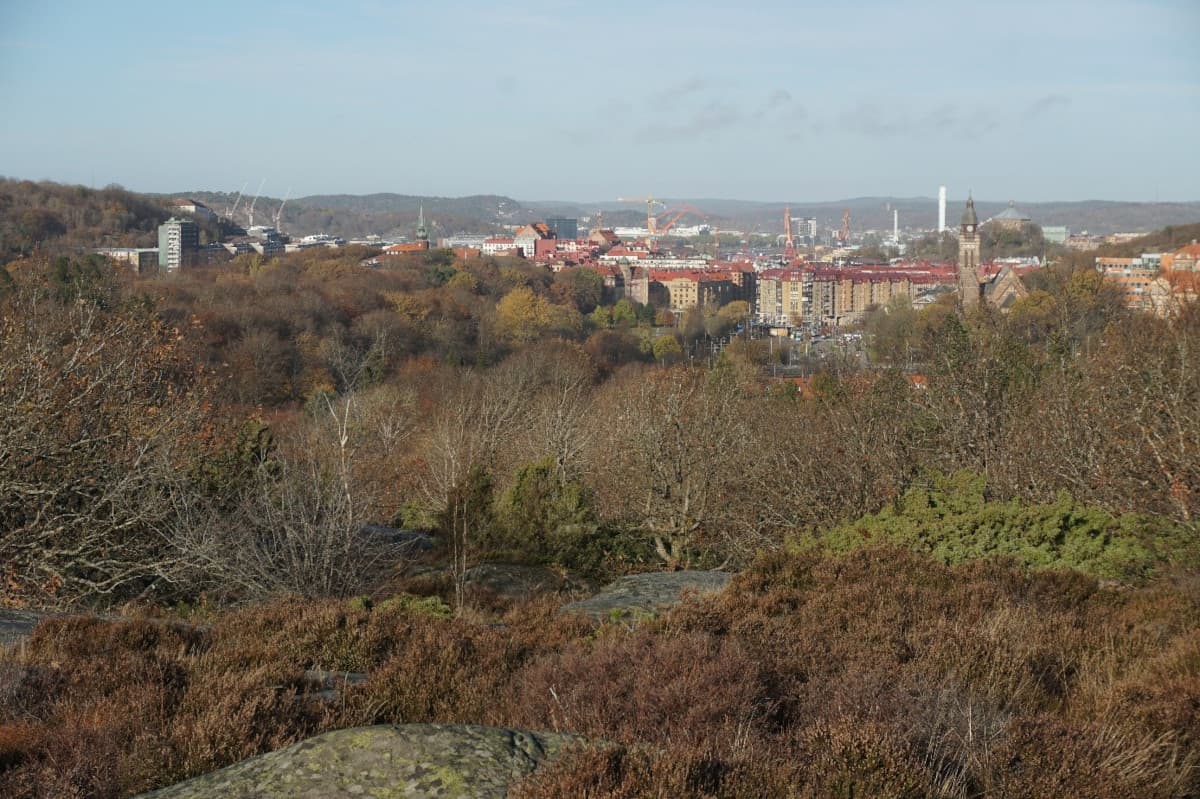
View from the botanical gardens towards the city. The faculty building I was working from was located right at the edge of the gardens.
Until spring 2021, working with my colleagues (except for my boss) was basically not possible and I switched between working at the office (beautifully located within the botanical gardens) and at home. Fortunately, I gained a really close friend circle through my Indian flatmate. His friends, a mix of international students and foreign-born Swedes, quickly became my friends as well. I was extremely grateful for having them around me during these challenging times. But there was another attraction to escape the Covid blues – Sweden’s stunning west coast. Popular for its astonishing outdoors, the coast and interior north of Göteborg offer an endless amount of opportunities for exploration. So on the weekends, I went on overnight hiking or kayaking trips around Västra Götalands region (basically the province around Göteborg, all the way up to the Norwegian border). The very well maintained hiking trails and wooden camping huts (simple shelters usually with a little fireplace open to everyone) were perfect for various trips. And to stay true to my marine focused internship, I even went diving in the freezing sea in November – my first experience with drysuit diving.
- Kayaking trip around the archipelago offshore from Göteborg.
- One of the many wooden shelters open to hikers and kayakers.
For Christmas I gave myself a little gift and took the night train up to Abisko in Lapland. The little town is quite famous as a location to spot the northern lights from, as well as for the stunning nature. Over the course of a week I hiked through the snowy landscape during the short day light hours (well, the sun never fully rose actually) and finished the days with bastu (Swedish for sauna) and northern lights hunting (I only briefly got lucky once).
- Abisko, Lapland during Christmas.
- The northern lights in Lapland during Christmas.
Once spring and summer had arrived, Göteborg in particular and Sweden in general showed themselves in a completely new light. Swedes love their summer, and even though the climate may not be comparable to the Mediterranean, this time is something special throughout the country. I cannot count how many times my friends and I went to the rocky shores on the outskirts of town to go for a swim (one definitely gets used to cold water). Being this far north, the sun almost never really sets during summer, which is a phenomenon in itself. Then Midsommar came, one of the most important festivities in Sweden. My friends and I spent a few days at my landlady’s house at the countryside (I had to move due to logistical reasons during my stay and moved in with an older Swedish lady), doing nothing than swimming in the lake and chilling on the terrace – good times. The pandemic situation also kind of eased up during that time, so I could finally take part in more extensive lab work and most of all go for a multi-day work trip up north to one of the unis marine research stations at the coast. I definitely learned a lot of practical applications in that time.
- The marine research station of Göteborgs Universitet in the far north of Sweden’s west coast, close to the Norwegian border.
- Mid June, 11:35 pm. During the summer months, the sun never fully sets.
My internship eventually ended in July 2021. I can definitely say that while performing an internship during these challenging times came with certain limitations, my time in Sweden allowed me to progress scientifically, but also to explore a beautiful destination and to gain very close new friends.
Further, I am grateful for the funding opportunities through the Erasmus+ scheme. However, while I do understand that withholding one third of the scholarship until after the internship has its logic, it will most likely prevent students with less fortunate financial backgrounds to perform such an internship in a country as Sweden with very high living costs.

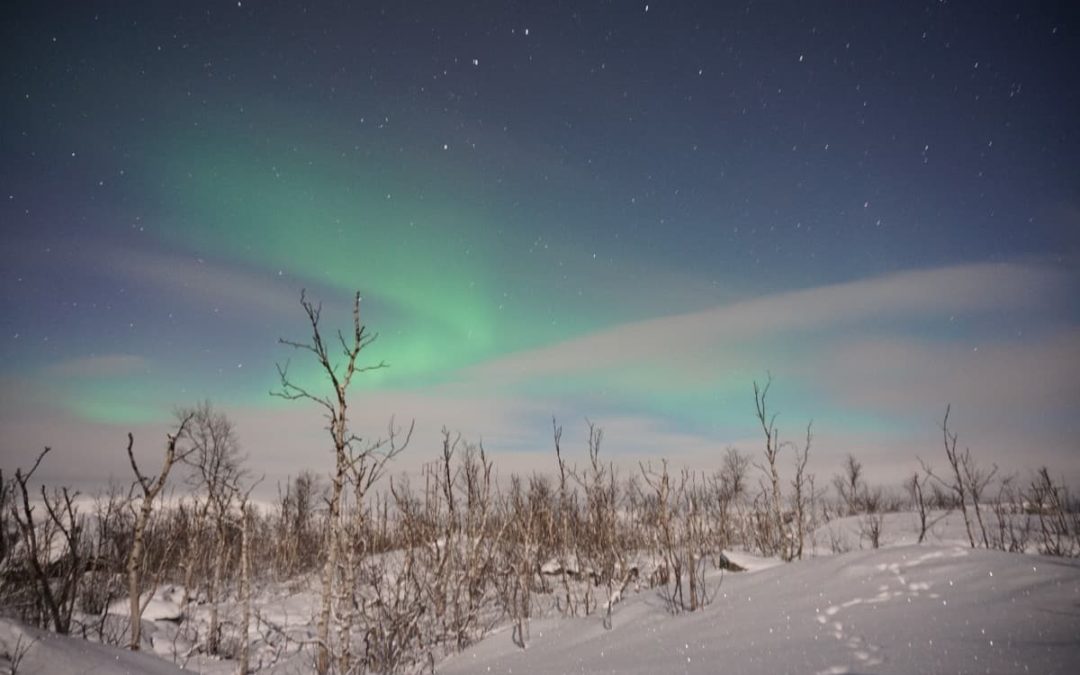
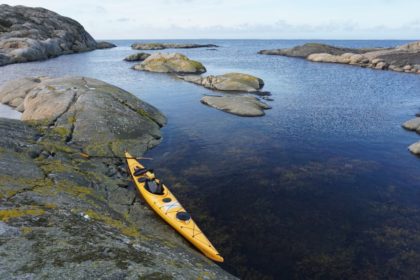
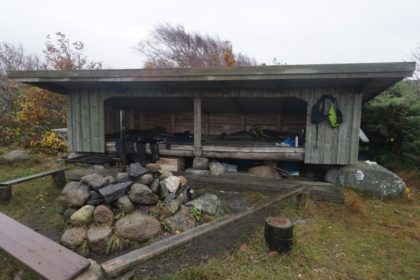
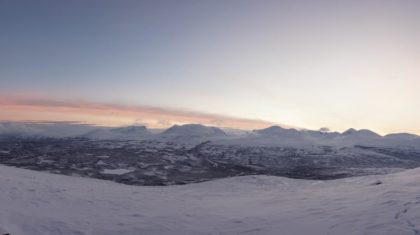
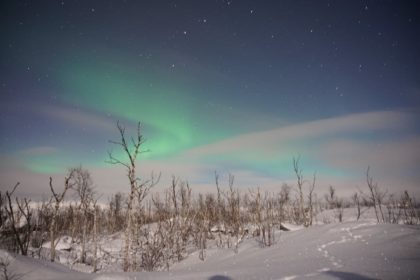
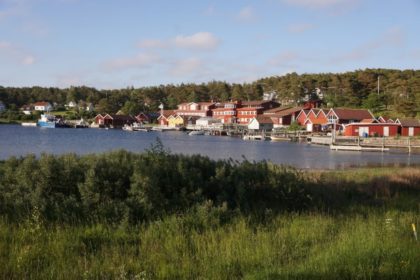
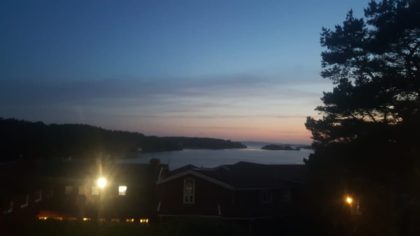
Neueste Kommentare